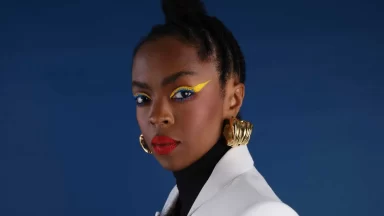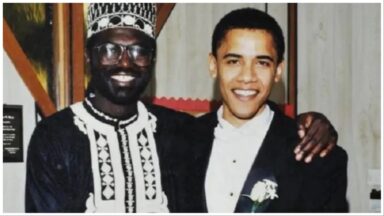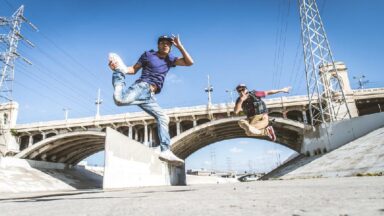In the midst of a pandemic, black Brazilians living in the United States compare racist attitudes and population protests in both countries
Viviane Faver
The combination of the pandemic and racist crimes committed by authorities was the trigger for firing the time bomb that had been fueled for years. Not only blacks, but the whole society that seems to have reached the limit with injustices in the world, especially the United States and Brazil. Could this be the reason for making people go to the streets in anger, risking their lives in the midst of a lethal pandemic in an attempt to claim their rights and protest against racist crimes? Most think so.
The United States is having protests non-stop, with thousands of people on the streets in more than 70 cities, asking for justice by George Floyd, 46, black suffocated by a white policeman, on May 25, in Minneapolis, after being detained under suspicion for trying to use a fake $ 20 bill in a supermarket. The crime sparked an explosion fueled by genuine and legitimate frustration over decades of failed police practices and the criminal justice system in the United States.

A similar indignation happened in Brazil, when, in the same week of Floyd’s death, the boy João Pedro, 14, was killed inside the house by police during an operation in Rio de Janeiro. The revolt of black Brazilians, who have also suffered for years from the brutality of the police and the prejudice of the elite, only increased – remembering that Brazil was the last country in the world to abolish slavery. It didn’t take long for protests against racism to start in Brazil, influenced by those in the US. But to what extent can we compare these stories?
I talked to Brazilians who live in the US and have dual nationality. Luis da Silva has lived in New York since 2005 and runs the office of the Org called Central Única de Favelas (CUFA), which operates in a big house in The Bronx. “We must not forget that these rebellions are the consequences of several factors, including this pandemic moment, when people had a radical life change, mainly poor and black. The protests are almost like an escape valve, manifesting everything at the same time ”, he analyzes.

The CUFA director highlights the impunity of racism in our country. “As much as we have a law that says that the practice of racism is an unreliable crime, the number of people convicted of racism is almost nonexistent. In Brazil, people disrespect blacks everywhere, with heavy racist offenses and curses, and everything ends with an apology without any consequences ”, he points out. “Here in the US, black people know their rights and, therefore, they know how to argue and recognize exactly how they are treated. We are protesting against the clearly racist police and we know that there are fascist, Nazi movements behind it all. This has to end, there is no more space for the extermination of black people ”.
Before living in New York, Luis was a member of the rap group Defensores do Movimento Negro (DMN), for 15 years, and used to give lectures in São Paulo’s peripheries and slums about racism and self-esteem. “The problem is that blacks in Brazil still want to adjust to the white universe because they believe that‘ we are all the same ’, but this is just an illusion. We have different cultures, we are descended from a different continent. The most important thing is respect – if you don’t like us, don’t camouflage, assume intolerance so that we don’t delude ourselves and create our own conditions for prosperity ”, he says.
The director of the CUFA office in New York also draws attention to the passivity of black Brazilians in comparison to the American. “Brazilians get used to this constant situation, which makes no sense. There are some struggles to be fought, such as making the laws to protect human beings really respected and racist acts punished. I would also like our people not to be divided by social classes, degrees of instruction and artistic categories, which ends up naturally distancing them from the poor and black majority of Brazil, to meet a more intellectual category on the racial issue ”, he adds.

Is there a solution? “The best way out is that it doesn’t matter if you are a black man from a favela or a doctor; our fight has to be for justice. I would like the good policemen to open their mouths and say something against this brutal inhumanity, so that we can really believe that they are not at the service of this corporation and we accept everything quietly ”, he stresses.
With the same line of thought of Luis, the carioca Monica Costa, who moved 33 years ago from the slum in Santa Teresa, Rio de Janeiro, to Maryland, in the US, says that there is, indeed, a great difference in the formation of black Americans and Brazilians: the quality public school is one of the great American advantages.

“Here, the Constitution is studied at school, the discourse is inclusive and they are part of the nation, giving the power to argue and know their rights. Unlike Brazil, in which the government prefers to leave the people blind, which leaves us without knowing how to defend ourselves ”, he argues.
Monica – now a successful businesswoman, owner of Wilniq Auto Body & Mechanical Repairs, a mechanical company – highlights the importance of protests against racism and the lack of humanity in the pandemic, when the black people are still treated with less value. “Protests are the only way we have to be heard. We are heard only when we take action and make noise. As a black woman, mother of two, it is very frustrating to see all this happening here. We already have enough evidence that this game is not fair, ”she adds, according to studies by American entities, anyone who arrives in the United States without documents, between two to three years living in the country, is already making more money than any black college-educated American citizen.



Recent Comments